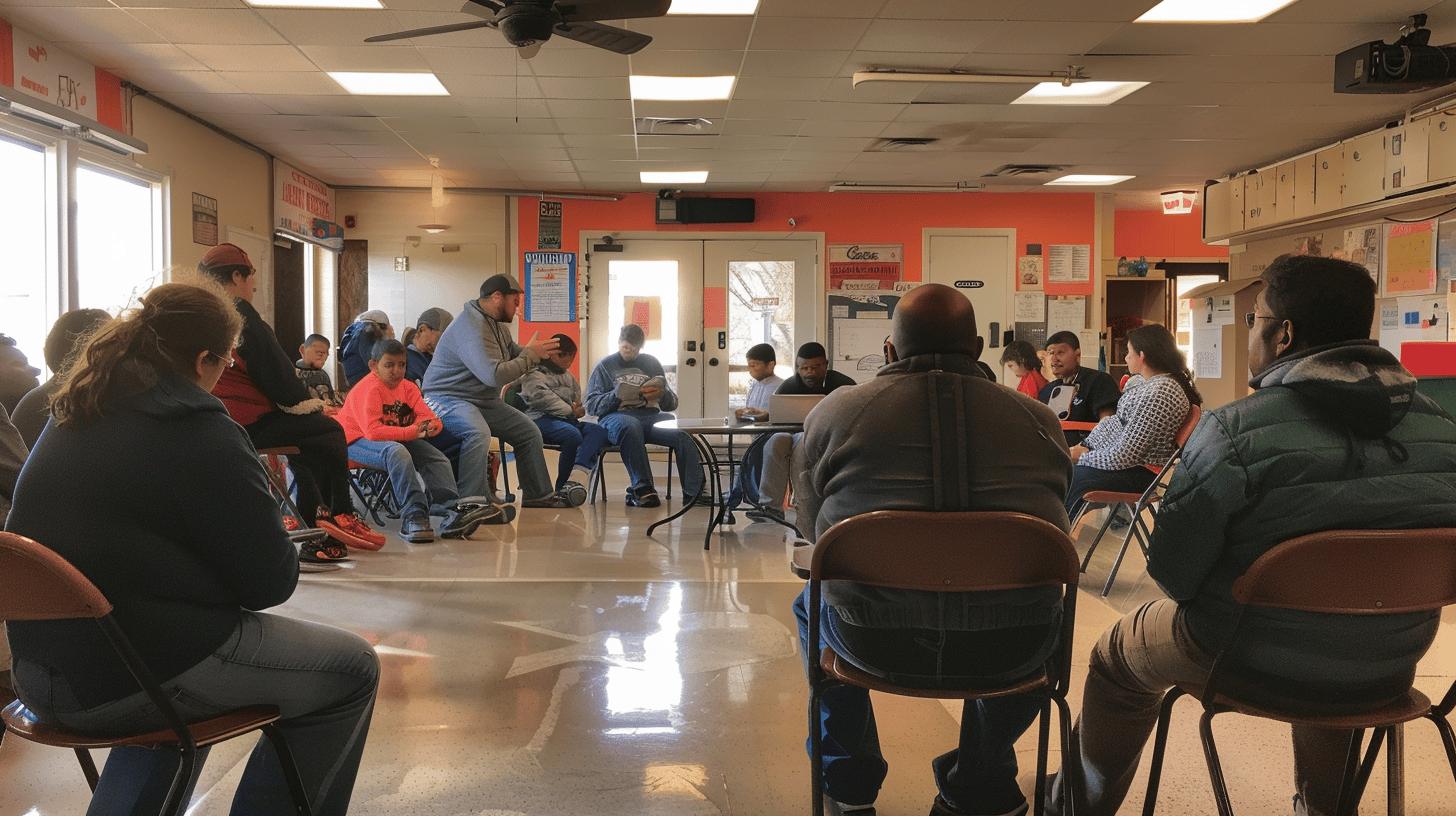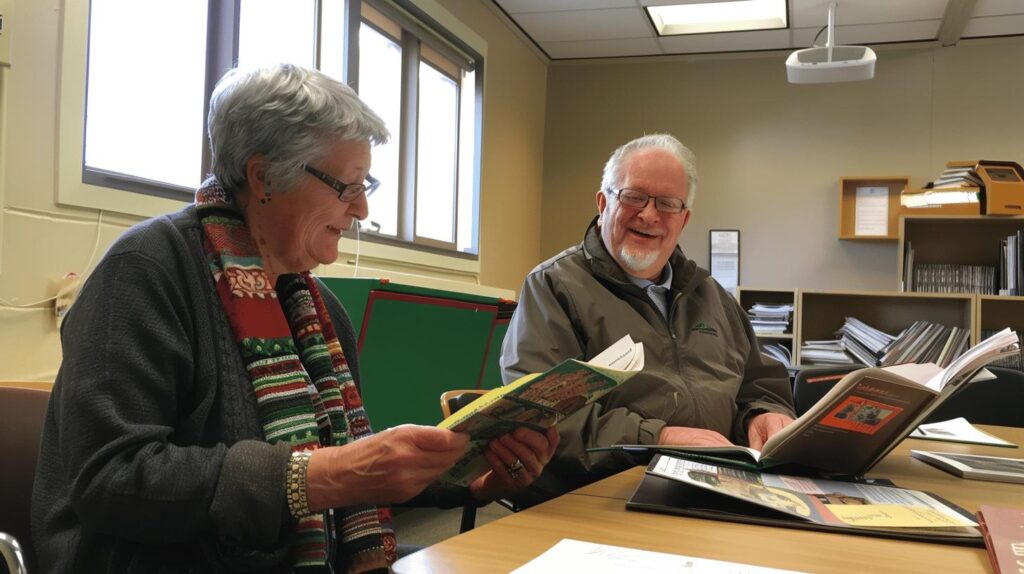Divorcing in Tennessee and worried about co-parenting? The state’s legal system mandates a crucial step: attending a divorce parenting class. Guided by Tennessee Code Annotated § 36-6-408, this requirement is designed to help parents manage co-parenting effectively. Navigating the changes a divorce brings is challenging, but the benefits of these classes are immense—from legal compliance to fostering a healthier environment for your children. This article will walk you through the requirements and advantages of divorce parenting classes in Tennessee, ensuring you have all the information you need to proceed confidently.
Requirements for Divorce Parenting Classes in Tennessee
Tennessee Code Annotated § 36-6-408 mandates that parents undergoing a divorce must take a parenting class to help manage co-parenting effectively. This legal requirement ensures that divorcing parents gain the necessary skills and knowledge to support their children's well-being during and after the divorce process. The goal is to minimize the negative impact of divorce on children by fostering a cooperative co-parenting environment.
The Parent Educational Seminar is a commonly court-ordered class for divorcing parents in Tennessee. This seminar covers essential topics such as managing emotions, effective communication, and conflict resolution. By attending this seminar, parents can better understand how to navigate the complexities of co-parenting, thereby reducing stress and promoting a stable environment for their children. Courts frequently order this seminar to ensure that parents are equipped with practical strategies for successful co-parenting.
The Tennessee Co-Parenting Online Class is court-approved by all Tennessee County Courts. This class is universally accepted across the state and satisfies Family Court orders or attorney recommendations. The online format offers flexibility, allowing parents to complete the course at their own pace and convenience. This accessibility ensures that all parents, regardless of their schedules or locations, can fulfill this vital requirement.
5 Key Requirements or Aims of the Tennessee Divorce Parenting Classes
- Equip parents with effective co-parenting strategies
- Improve communication between co-parents
- Reduce conflict and emotional stress for children
- Promote a stable and supportive environment for children
- Ensure compliance with legal mandates and court orders
Online vs. In-Person Parenting Classes

Online parenting classes offer unparalleled flexibility and accessibility. They are available 24/7, making it easy for parents to fit the coursework into their busy schedules. These classes can be accessed from any device, including computers, laptops, tablets, and smartphones, allowing parents to learn at their convenience. Additionally, online classes are often self-paced, meaning there are no strict deadlines to meet, which can reduce stress for parents already navigating the complexities of divorce.
In contrast, in-person parenting classes may be less flexible but provide the benefit of face-to-face interaction. This can be particularly valuable for parents who thrive on direct communication and personalized feedback. In-person classes often follow a structured schedule, which can help parents stay on track and ensure they complete the course in a timely manner. The opportunity for live discussions and immediate support can also enhance the learning experience, making it more engaging and interactive.
| Class Type | Advantages | Disadvantages |
|---|---|---|
| Online | Flexible, accessible 24/7, self-paced, available on multiple devices | Lacks face-to-face interaction, requires self-discipline |
| In-Person | Face-to-face interaction, structured schedule, immediate support | Less flexible, requires physical attendance |
Duration and Costs of Divorce Parenting Classes
Divorce parenting classes in Tennessee come in various durations to accommodate different schedules and needs. The Baker Training Institute offers classes in 4, 6, or 8-hour formats. These options allow parents to choose the length of the class that best fits their availability and learning preferences. The flexibility in duration ensures that parents can complete the required coursework without overwhelming their already busy lives.
Affordability is a key consideration for many families undergoing a divorce. The cost of these classes is generally low, making them accessible to most parents. Some programs, like those offered by the Center for Divorce Education, provide low-cost options such as "Children In Between." Additionally, some organizations offer free online parenting classes with certificates, making it easier for parents to meet court requirements without financial strain.
Specific programs like "Children In Between" stand out for their cost-effective solutions. These programs are designed to provide essential parenting skills and strategies at a fraction of the cost of traditional classes. By offering high-quality education at a lower price, these programs ensure that all parents, regardless of their financial situation, can access the resources needed to support their children's well-being through the divorce process.
4 Examples of Programs Offering Free or Low-Cost Divorce Parenting Classes
- "Children In Between" by the Center for Divorce Education
- Free online parenting classes with certificates
- Low-cost programs from the Baker Training Institute
- Free online parenting classes for single mothers
How to Enroll in a Divorce Parenting Class in Tennessee

Enrolling in a divorce parenting class in Tennessee is a straightforward process. Participants must first register for the course to gain access to the Member's Only Area. This exclusive area provides all the necessary materials and instructions for completing the class. The Baker Training Institute, for example, offers an easy enrollment process with no hidden fees, ensuring transparency and ease for all users. Once registered, participants can start the course immediately, allowing them to begin learning without delay.
One of the significant advantages of these online classes is the flexibility they offer. Participants can complete the course at their own pace, making it convenient for those with busy schedules. There are no strict deadlines, which means parents can fit the coursework into their routine as needed. Upon completion of the course, a certificate is issued immediately. This certificate is essential for meeting court requirements and can be presented as proof of completion.
5 Steps to Enroll in an Online Divorce Parenting Class
- Step 1: Visit the course provider’s website.
- Step 2: Register for the course by filling out the required information.
- Step 3: Gain access to the Member's Only Area with course materials.
- Step 4: Start the course immediately and complete it at your own pace.
- Step 5: Receive your completion certificate instantly upon finishing the course.
Course Content Summary for Divorce Parenting Classes
Divorce parenting classes in Tennessee cover a wide range of content aimed at enhancing co-parenting skills and ensuring the well-being of children during and after divorce. Foundational skills are a primary focus, including conflict management and relationship building/repair techniques. These classes teach parents how to handle disagreements constructively and maintain a positive relationship with their co-parent, which is crucial for creating a stable environment for the children. Expert parenting techniques are also covered, offering practical advice on effective parenting in a post-divorce setting.
Key topics covered in these classes include child support, managing emotions, parenting with a difficult co-parent, discipline strategies, and communication improvement. For instance, parents learn how to manage their emotions and develop strategies to cope with the stress and challenges of co-parenting. Effective communication techniques are taught to help parents interact more positively with each other, reducing the likelihood of conflicts. Discipline strategies are also covered, providing parents with tools to maintain consistency and fairness in their parenting approach.
Specialized programs like the Center for Divorce Education's "Children In Between" focus specifically on reducing conflict and improving communication between co-parents. This program aims to minimize the negative impact of divorce on children by fostering a more cooperative co-parenting relationship. Additionally, courses led by experts like Dr. Becca Ballinger cover modern parenting topics, ensuring that parents are equipped with up-to-date information and strategies. These specialized programs and expert-led courses offer valuable insights and practical advice tailored to the unique challenges of co-parenting after divorce.
6 Key Topics Covered in Divorce Parenting Classes
- Foundational skills and conflict management
- Relationship building and repair techniques
- Child support and financial responsibilities
- Managing emotions and stress
- Parenting with a difficult co-parent
- Effective discipline strategies and communication improvement
Benefits of Completing a Divorce Parenting Class

Effective co-parenting strategies can help create co-parenting goals and handle difficult conversations. Divorce parenting classes aim to bring order and peace into homes through effective discipline and communication plans. By taking these classes, parents learn to manage conflicts constructively and develop a cooperative approach to raising their children. This cooperation significantly reduces emotional stress for children, fostering a more stable and supportive environment.
Participants also receive a court-accepted certificate upon completion, which can be essential for meeting legal requirements. Courts often mandate these classes as part of the divorce process to ensure that parents are equipped with the knowledge and skills to co-parent effectively. Research supports the effectiveness of these programs in reducing conflict and improving co-parenting relationships. This legal compliance not only helps in fulfilling court orders but also demonstrates a commitment to prioritizing the children's well-being during and after the divorce.
4 Main Benefits of Completing a Divorce Parenting Class
- Improved co-parenting strategies and better communication
- Reduced conflict and emotional stress for children
- Effective discipline and communication plans
- Court-accepted certificate for legal compliance
Testimonials and Reviews of Divorce Parenting Classes in Tennessee
Divorce parenting classes in Tennessee have garnered high satisfaction rates among participants. Positive reviews often highlight the significant reduction in conflict and improved communication between co-parents after completing the courses. Many parents praise the convenience and accessibility of online classes, particularly appreciating the ability to complete the coursework at their own pace. This flexibility is especially beneficial for single mothers and busy parents who need to balance multiple responsibilities while navigating the challenges of divorce.
Professional reviews and research consistently support the effectiveness of these programs. Experts note that these classes provide essential tools and strategies that help parents co-parent more effectively, thereby fostering a more stable environment for their children. The courses are designed to address common co-parenting issues, offering practical solutions that can be implemented immediately. This expert validation reinforces the positive experiences reported by parents, making these classes a trusted resource for those undergoing a divorce.
3 Highlighted Testimonials or Reviews from Participants
- "After taking the online class, my ex and I communicate much better, and our kids seem happier."
- "The convenience of completing the course on my own time was a lifesaver. Highly recommend for busy single mothers."
- "The strategies I learned have made co-parenting so much easier. We're finally on the same page, thanks to this class."
Additional Resources and Support Groups for Divorcing Parents in Tennessee

Support groups and specialized programs for parents and children are widely available in Tennessee to assist divorcing families. These resources offer essential emotional support and practical advice for navigating the complexities of co-parenting. One notable program is "Children In Between For Kids," which focuses on helping children cope with the changes brought about by divorce. This program provides tools and strategies to help children understand and manage their emotions, fostering a more stable environment at home. Additionally, various local and national support groups cater specifically to divorced parents, offering a platform for sharing experiences and gaining valuable insights.
Many organizations in Tennessee provide free or low-cost resources for divorcing parents. These resources are designed to alleviate the financial burden often associated with divorce while ensuring that parents receive the support they need. Free online parenting classes are also available, offering flexible and accessible options for parents to meet court requirements without additional costs. Such classes provide practical advice and strategies for effective co-parenting, helping parents to create a more harmonious environment for their children.
4 Additional Resources or Support Groups for Divorcing Parents
- "Children In Between For Kids" program
- Local support groups for divorced parents
- National support groups catering to co-parenting challenges
- Free online parenting classes with certificates
Final Words
Understanding the legal requirements of a divorce parenting class in Tennessee is crucial.
These classes, mandated by Tennessee Code Annotated § 36-6-408, help parents navigate co-parenting.
Both online and in-person options are available, with each offering distinct advantages.
Classes are affordable, with various durations and even free options.
Enrolling is straightforward, and completing these courses benefits both parents and children.
Investing time in a divorce parenting class promotes a healthier co-parenting environment and meets legal obligations.
Ensuring effective co-parenting can make a significant difference during and after the divorce process.
FAQ
Does TN require parenting classes for divorce?
Tennessee requires parents undergoing a divorce to take a parenting class to help manage co-parenting. This is mandated by Tennessee Code Annotated § 36-6-408.
What is the statute for parenting class in Tennessee?
The statute is Tennessee Code Annotated § 36-6-408, which mandates that parents in a divorce must complete a parenting class.
Free online divorce parenting class Tennessee
Several organizations offer free online divorce parenting classes in Tennessee. Check with local courts or online providers for specific offerings and availability.
TN divorce parenting class online
The Tennessee Co-Parenting Online Class is court-approved by all Tennessee County Courts and can be taken online for convenience.
Best divorce parenting class Tennessee
The best class depends on your needs, but options like the Tennessee Co-Parenting Online Class and the Parent Educational Seminar are highly recommended.
Divorce parenting class Tennessee near me
To find a nearby divorce parenting class, contact your local Family Court or search online for approved providers in your area.
DCS approved parenting classes
DCS (Department of Children's Services) approved classes vary. Contact DCS directly or check their website for a list of approved parenting programs.
Divorce parenting class Tennessee cost
Costs vary, but classes are generally affordable, with some programs offering free options. Check specific providers for detailed pricing.
How to handle an uncooperative co-parent?
Handling an uncooperative co-parent involves clear communication, setting boundaries, and focusing on the child’s best interests. Consider mediation or counseling if needed.
At what age can a child choose which parent to live with in TN?
In Tennessee, a judge generally considers a child’s preference at age 12, but the final decision is based on the child’s best interests.


